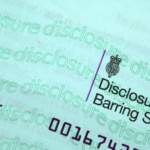Should Employers Conduct Social Media Checks?
These days, social media is everywhere. People post all kinds of personal information online, giving a glimpse into their interests, beliefs, and behaviours. For employers, this can be a valuable resource during the hiring process. However, it also raises significant questions about privacy, ethics, and legality. At E2E Vetting, we offer thorough pre-employment screening services and can help you decide if social media checks should form part of your hiring strategy.

The Pros of Conducting Social Media Checks
- Insight into Personality and Behaviour – Social media profiles can offer insight into a candidate’s personality and behaviour outside of work. Employers can learn about a candidate’s interests, values, and how they interact with others. This can be particularly useful for roles requiring strong interpersonal skills or a good cultural fit.
- Verification of Information – Social media can help verify the information candidates provide in their CVs and applications. For example, LinkedIn profiles can confirm job history and professional achievements. If there are discrepancies, it may raise concerns about a candidate’s honesty.
- Red Flags and Risk Management – Employers can identify potential red flags that may not appear in traditional – screening methods. This includes inappropriate behaviour, such as discriminatory comments, excessive negativity, or illegal activities. Identifying these issues early can help avoid hiring someone who does not align with the company’s values.
- Cultural Fit – Social media checks can help determine if a candidate will fit into the company culture. By reviewing a candidate’s hobbies, interests, and social activities, employers can assess whether their lifestyle and values align with the organisation’s environment and ethos.
The Cons and Considerations of Conducting Social Media Checks
- Privacy Concerns – One major concern with social media checks is privacy. Candidates may feel that their personal lives are being unfairly scrutinised, potentially leading to resentment or mistrust. It is important to respect candidates’ privacy and only review publicly available information.
- Legal and Ethical Issues – Employers must navigate various legal and ethical challenges when conducting social media checks. Discriminatory practices based on protected characteristics (such as race, gender, or religion) visible on social media can result in legal issues. Clear guidelines are essential to ensure hiring decisions are based on job-related criteria.
- Bias and Subjectivity – Social media checks can introduce bias and subjectivity into the hiring process. Personal opinions and unconscious biases may influence how social media content is interpreted. Employers must ensure these biases do not affect their hiring decisions.
- Accuracy and Relevance – Information on social media is not always accurate or relevant to a candidate’s professional abilities. Over-reliance on social media checks can lead to misguided conclusions. Employers should carefully consider the context and relevance of the information in relation to the job role.
Best Practices for Conducting Social Media Checks:
- Develop a Clear Policy – Establish a clear and transparent social media screening policy. Define the types of information that will be reviewed, how it will be used, and ensure compliance with legal and ethical standards. Communicate this policy to candidates during the hiring process.
- Limit Checks to Public Information – Only review publicly available information to respect candidates’ privacy. Avoid attempting to access private profiles or asking candidates to provide access to their social media accounts.
- Focus on Job-Relevant Information – Ensure the information considered during social media checks is directly relevant to the job role and company values. Avoid making decisions based on personal opinions or non-job-related characteristics.
- Train Hiring Managers – Provide training for hiring managers and HR staff on how to conduct social media checks objectively and ethically. Emphasise the importance of avoiding bias and respecting privacy.
- Use a Third-Party Service – Consider using a third-party service, such as E2E Vetting, to conduct social media screenings. Professional screening services can deliver unbiased and compliant reports, ensuring the process is fair and consistent.
Conclusion
Social media checks can be a valuable component of the pre-employment screening process. They provide insights into candidates’ personalities, behaviours, and potential cultural fit. However, employers must remain mindful of privacy concerns, legal and ethical challenges, and the risk of bias. By implementing clear policies, focusing on job-relevant information, and training hiring managers, employers can conduct social media checks responsibly and effectively.
At E2E Vetting, we are committed to helping employers make informed and fair hiring decisions. Our comprehensive pre-employment screening services, including social media checks, are designed to provide the information you need while ensuring compliance with legal and ethical standards. Contact us today for more information on how we can support your hiring process.


